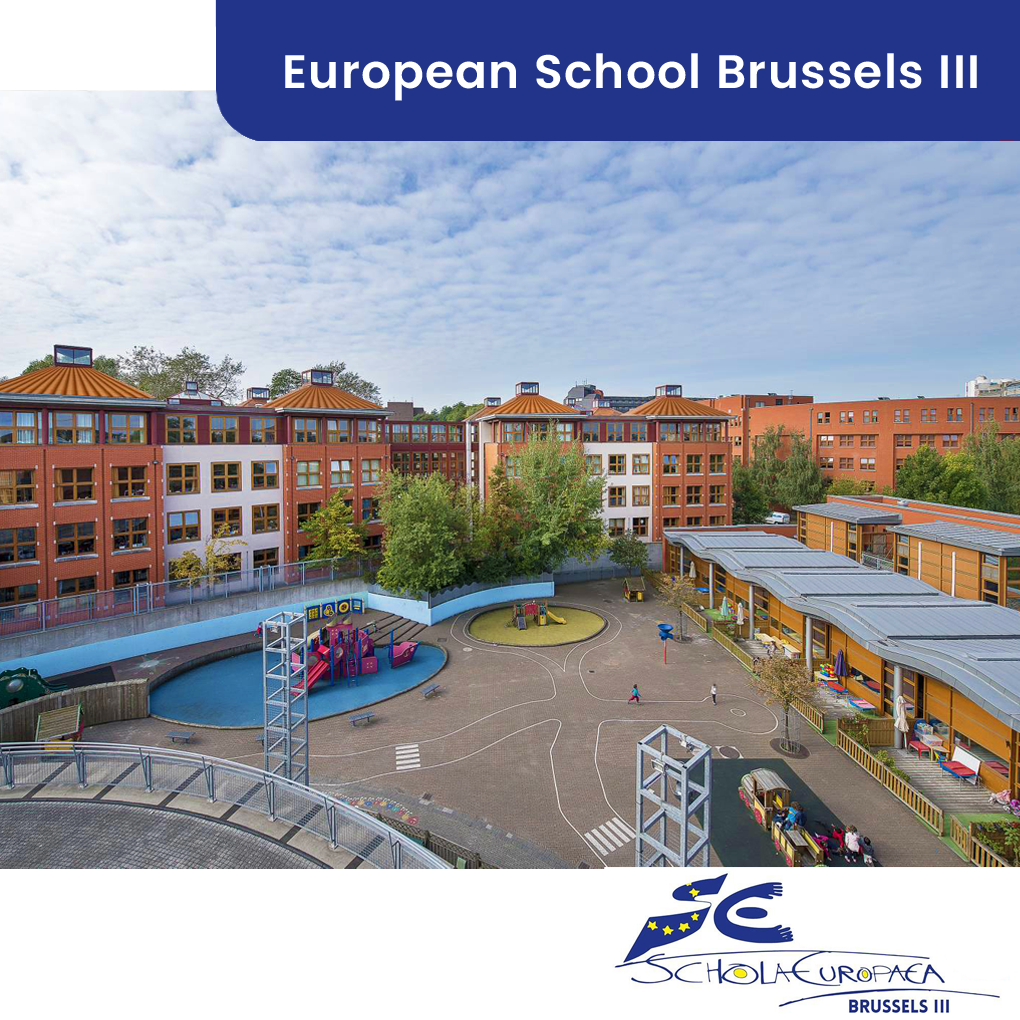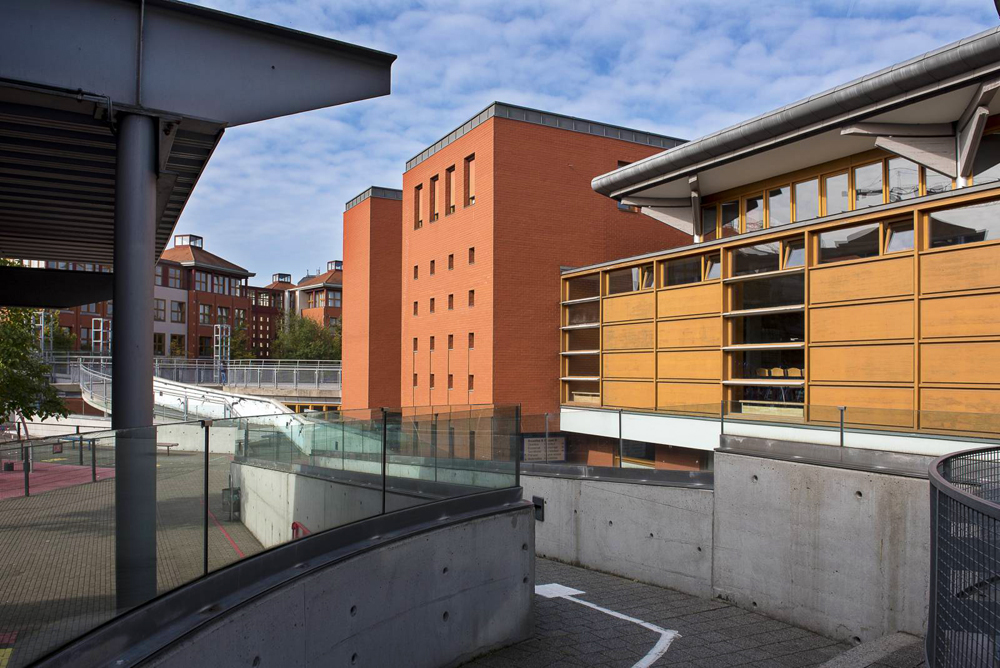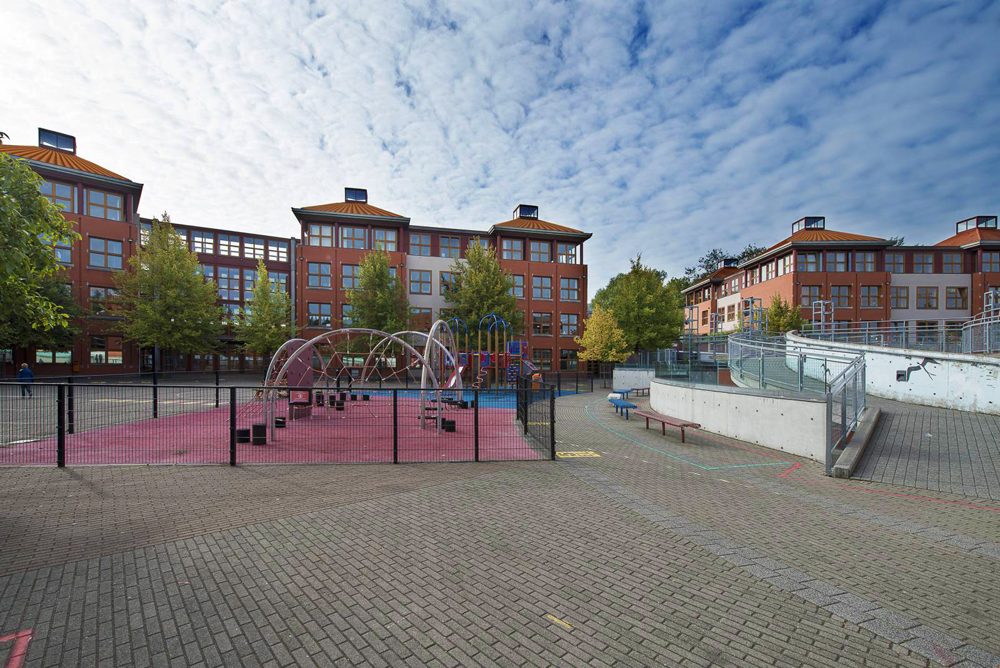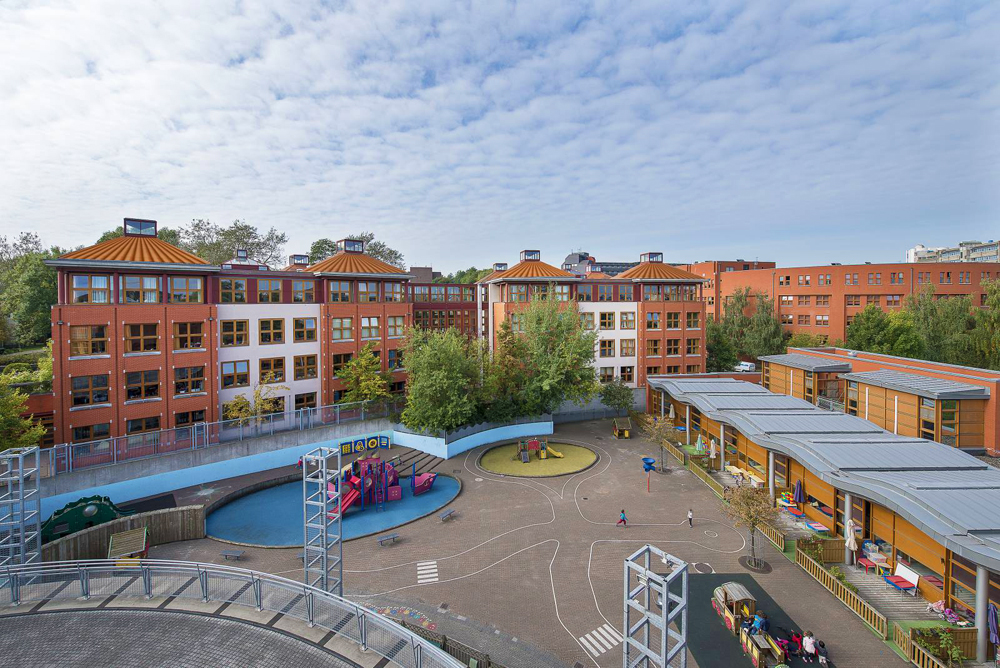
European school in Brussels
European School Brussels III Ixelles
The European School Brussels III (EEB3), located in Ixelles, opened in 1999 to provide high-quality multilingual and multicultural education.
The school welcomes around 3,237 students from 30 different nationalities, supervised by 434 staff members. With a teacher-student ratio of 1 to 9.7, EEB3 ensures personalized educational support and training tailored to each student’s needs.
3237
STUDENTS
30
NATIONALITIES
434
EMPLOYEES
Educational Programme of European School Brussels III Ixelles
Academic Curriculum
> Ages 4 to 18
European School Brussels III offers three educational cycles:
- Nursery School (ages 4-5) – EEB III
- Objective: Development of basic skills, creativity, and respect for others.
- Primary School (ages 6-10) – EEB III
- Objective: Mastery of fundamentals in mother tongue, mathematics, and first foreign language, enriched with cultural and artistic activities.
- Secondary School (ages 11-18) – EEB III
- Objective: Advanced knowledge in languages, humanities, mathematics, and experimental sciences, with optional specialized subjects.
Upon completing secondary education, students receive the European Baccalaureate, a diploma recognized across the EU and internationally, facilitating access to leading universities worldwide.
7 language sections
+ other languages taught
The European School Brussels III offers an environment rich in cultural and linguistic diversity, fostering open-mindedness and intercultural exchange.
Available language sections:
🇩🇪 German | 🇬🇧 English | 🇫🇷 French | 🇨🇿 Czech | 🇬🇷 Greek | 🇪🇸 Spanish | 🇳🇱 Dutch
This multilingual education enables students to maintain and develop their mother tongue, enhance foreign language skills, and deepen their understanding of diverse European cultures.
Parents’ Association (APEEE)
An active and supportive community
European School Brussels III benefits from the support of the Parents’ Association (APEEE), an independent association managed by volunteer parents.
The APEEE represents parents to the school administration and educational bodies, facilitating students’ school life through various services.
The APEEE Services organizes essential services on the Ixelles campus:
- Canteen – Daily school meals.
- School transport – Bus services to/from school and childcare facilities.
- Extracurricular activities – A wide selection of activities and individual music lessons.
Membership is voluntary but required for access to services and participation in APEEE decision-making.
Admission Requirements | European School Brussels III Ixelles
Admission to European Schools is based on a category system (I, II, and III), defining admission priorities and fees. Students not falling into any category cannot be enrolled.
Category I: Priority and Free Admission
Children of employees of EU institutions and affiliated organizations (European Commission, European Parliament, EIB, etc.) have guaranteed spots and exemption from tuition fees.
This includes:
- EU institution officials and contract agents
- National experts seconded to institutions
- European School teachers and staff
- Staff of the EIF Secretariat and other approved bodies
Category II: Admission under Special Agreements
Students in this category are admitted based on specific agreements between European Schools and certain organizations or companies. These agreements specify rights and financial contributions towards tuition fees.
Category III: Admission Subject to Availability
Students not falling into Categories I or II. Admission depends on available places and requires tuition fees set by the Board of Governors of the European Schools.
Priority for Category III:
- Children of diplomats and national officials stationed in Brussels.
- Children of diplomatic personnel returning to their home country where integration is difficult.
- Children of staff from non-EU permanent representations.
- Children of diplomatic status staff based in Brussels and Luxembourg.
- Children from families whose mother tongue or previous instruction language doesn’t match national education languages.



